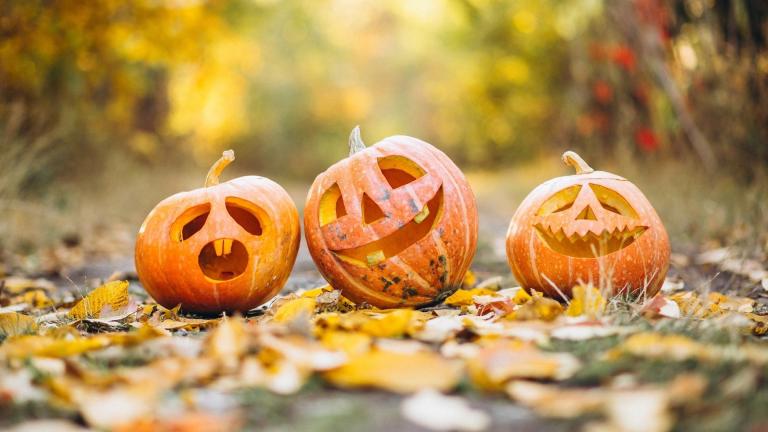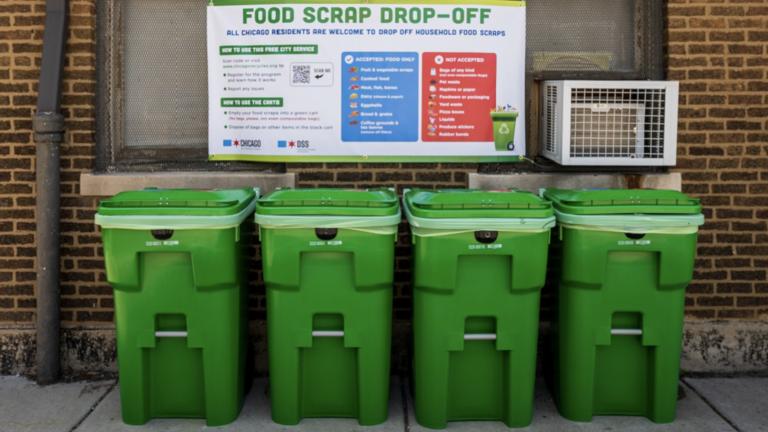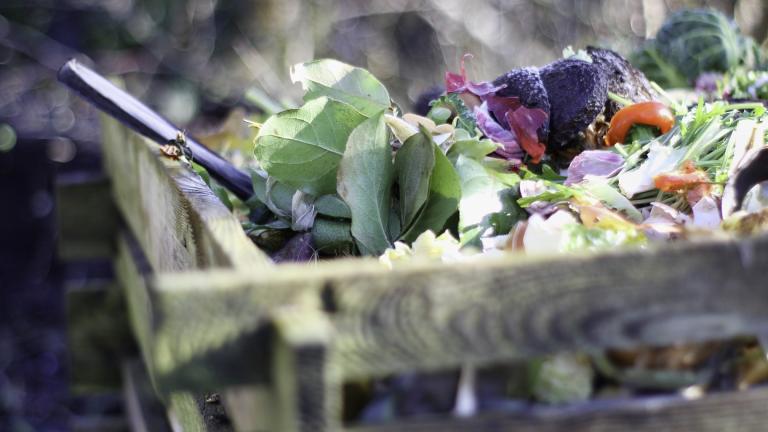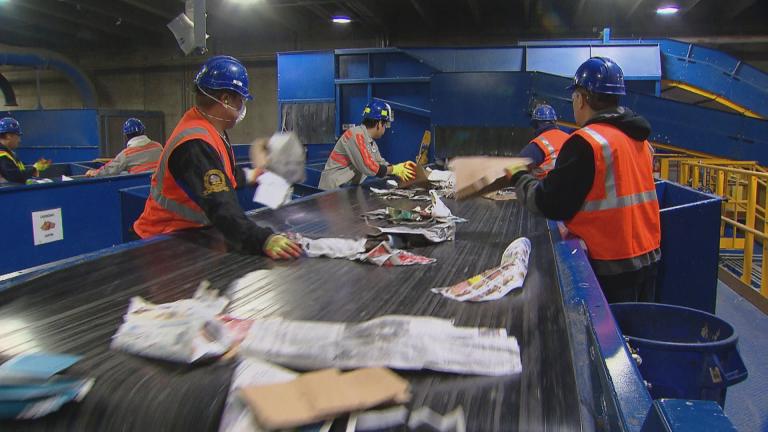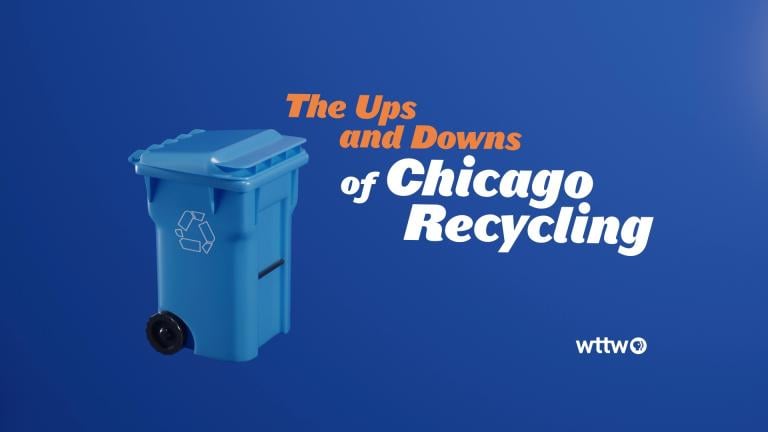We learn how to reduce waste through the everyday art of composting on Chicago Tonight at 7:00 pm. Check out dos and don'ts of composting, view a map of places offering composting classes and services, and read a book excerpt from guest Stephanie Davies' newest book below.
Composting Dos and Don'ts
DO:
- Choose a system. There are two common ways to compost: with or without worms. Using worms requires a little more effort –and worms – but requires a little less space and can be done both indoors and outdoors.
- Chop up the materials you place in the composting bin. It will help them to break down more quickly.
- Mix both browns (wood materials, tree clippings) and moist green materials (leaves, fruits, vegetables.)
- Compost fallen leaves, prunings, untreated wood sawdust, black and white newspaper, fruit and vegetable trimmings, small weeds, coffee grounds and filters, egg shells, citrus rinds, tea bags.
- Use a rodent-resistant composting system. The city of Chicago requires composters to use them. Use a bin with a lid, a floor and no holes or gaps larger than 1/4 inch.
- Turn your compost pile. Mix it each time you add new material, or about once a week.
DON’T:
- Let the compost heap dry out. Dry piles will keep the materials from composting. It’s best to keep the pile at most as a wrung out sponge. Add water when needed.
- Compost meat, fish, bones, dairy products, grease, grains, breads, beans, feces, plywood or treated wood sawdust. The proteins break down differently than other compostable items and could attract rodents.
- Leave food scraps and grass clippings at the top of the pile. Mix them into the center to keep animals and flies away.
*Tips courtesy of City of Chicago, Garfield Park Conservatory Alliance and the University of Illinois Extension Office
Blue Pin - Commercial, for-profit companies
Red Pin - City, non-commercial organizations
Read an excerpt from Stephanie Davies' book, Composting Inside & Out: 14 Methods to Fit Your Lifestyle.
Preface: Inside & Out
Did you know that the art of composting can take place inside as well as outdoors? It’s true: We can transform a great deal of our waste into compost in the confines of our homes. Within the pages of this book, you’ll see that not only is indoor composting possible, but with a little guidance and few tools, it’s quite simple. You’ll also learn the best outdoor composting method for your unique living situation and the keys to success. You’ll see the benefits of composting from some new perspectives, which occur both inside and out. Indoor houseplants fed compost burst forth with new growth and blooms, while the lawn outside your window will flourish, and the vegetable garden will produce its best tomatoes when fed compost.
There is no mistaking the benefits of the added biology and nutrients compost brings to indoor plants, gardens, soil, and the environment. But did you know that composting can also help you and your body inside and out? Taking on the activity of composting may have a transformative effect on both your inner and outer worlds, your mental well-being as well as your physical well-being. It has for me, and I wrote Composting Inside & Out to share my experience with you.
Physical Well-Being
The physical health benefits of compost are clear, especially if you plan to grow your own edibles. Compost provides nutrients, soil biology, and natural pest resistance, which leads to a happier and heartier garden without the use of harmful pesticides. Research shows that pesticides and chemical fertilizers used on lawns and gardens are absorbed into our bodies causing extensive health problems. These substances are stored in our cells and passed on to future generations. They also change the composition of the soil and the food grown in that soil, as well as the chemical makeup of the food, water, and air that we take into our bodies.In an interview with The Sun magazine, Sandra Steingraber, an environmentalist and expert on the causes of cancer and reproductive problems, said, “other than the forty-six chromosomes bequeathed to us by our parents, we are simply rearranged molecules of air, food, and water.” She reminds us of the obvious, “…you breathe in so many gallons of air every day; you drink so many quarts of water; and you eat so many molecules of food.” Shouldn’t it be clear upon hearing that reminder that we need to be very careful about what we ingest and to what we are exposed? Keeping chemicals, such as fertilizers and landfill leachate, out of our soil, air, and water is essential. Steingraber reminds us that the molecules you ingest and absorb daily, “…are knitted together to make your brain, your muscles, your hair, and your blood.” The image of these toxic chemicals settling into the organs of your body can be quite disturbing. These are facts we can ignore no longer. To live happy and healthy lives, we need to change our agricultural habits, our waste management habits, and our reliance on chemicals. The small changes we make as individuals, such as composting instead of using landfills, have an effect not only on ourselves but also on all the life around us and our future generations.
Composting helps us understand and improve our diets and food habits. Although I am generally a healthy eater, composting with worms made me take notice of what I ate. The world around me became a list of items that were either organic, compostable waste or not. Waste became categorized as either worm food or not. With my eyes open and my attention to these details heightened, my diet improved even more. My grocery bags contained more and more veggies (which worms love) and less meats and processed foods (which harm worms). Worms should not be fed meats, cheeses, oils, vinegars and spices, including excessive salts, so I became more conscious of these items in my diet. If I ate these things, I could not feed them to my worms. I would have to throw them in garbage, which would defeat my original intent of reducing my waste stream. As doctors have told us, we should be minimizing fatty and salty foods to ensure longevity and heart health. What’s good for me is good for my worms. What feeds my compost feeds me, and now that I have a 10' × 4' (3m × 1m) raised bed full of organic edibles in my backyard, this principle carries even more meaning for me. My composted waste literally feeds my soil and my dinner plate.
When I began composting, I wasn’t a strong gardener, and I had no plans to become one. But as composting increased my awareness of what I ate and where my food came from, I developed a longing to grow my own food and participate more fully in the cycles of life.
Mental Well-Being
As a healthcare provider for more than fifteen years, I can attest to the fact that our mental and emotional states also directly affect our physical health. Environmental factors are not the only concern. Medical research has documented the negative effect of stress on our bodies, and stress is a proven contributing factor to illness. Multitasking and complex lifestyles based on the ideas that “more is better” and “keeping up with the Joneses” are contributing to a culture of pain, disease, and illness. It is becoming more and more challenging to find time in our lives for simplicity and connection to the natural world. In a world that values convenience, multitasking, and productivity, it can be difficult to find joy associated with simpler times. Stopping to smell the roses, or in this instance, stopping to smell the compost, is more important than ever.The art of composting, whether working with worms, Bokashi enzymes, or a traditional tumbler, allows us to experience a connection to the natural world and the cycle of life. The inner emotional and mental benefits may be a surprise to many. Reconnecting to textures of food, colors of soil, and smells of the earth feels good! An inner chord is struck when we see a beautiful ripe tomato on the vine, catch the whiff of a lily in bloom, or snack on a snap pea growing right in the yard. In that moment, all of life is complete; nothing is missing.
Often, floods of childhood memories return when I am caring for my worms or shoveling some fresh compost into the garden. As children, many of us were much freer, playing in the dirt, catching bugs, getting our hands dirty, and exploring the natural world around us. We actually saw the little creatures in the dirt and were curious about their existence. Those memories are candy for the brain, bringing back the sweet curiosity of youth and ease of living. If you haven’t yet had the chance in life to experience these simple joys, it is never too late to start.
When reconnecting to the natural world, we are reminded of the Earth’s inherent wisdom; we feel a little less worried about controlling all the details of the day. Natural forces are at work all around us supporting our needs. Just seeing this can feel like a sigh of relief. If we go a step further and nurture and support these natural forces with our discipline and energy, the process can be a joyful experience. It’s joyful to spend time working for a greater good instead of caring only for ourselves, and that goodwill can extend to organisms we can barely see. Taking care of my compost microorganisms and my worms is different than caring for my orange tabby cat. In slowing down and taking the time necessary to care for these new working worms and soil organisms, I have gained new perspective. They are not exactly my companions, like my furry friend; they are my workers, stewards of the environment. Caring for them translates to caring for the creatures around me and caring for the planet. The extra time I take to cut up and wash food scraps that will easily and efficiently be processed by the organisms in my bin is service to the planet. Being open to the world around me and the role I play in its health has become a fulfilling priority. I hope it will do the same for you.
Housing and employing composting worms has enhanced my personal spiritual practice. I hope that Composting Inside & Out will enable you to explore how all forms of composting, including worm composting, enhances and nourishes your life on many varied levels. As individuals, we have choices to make every day about how we want to live our lives, and as anthropologist Margaret Mead stated, “Never doubt that a small group of thoughtful, committed citizens can change the world; indeed, it’s the only thing that ever has.” We are those thoughtful, committed citizens, and we can change the world! Restoring balance in our individual lives and our culture as a whole will take time. But now is the time to start. Be that change! Start composting today.
Courtesy of F+W Media, originally published in Composting, Inside & Out

